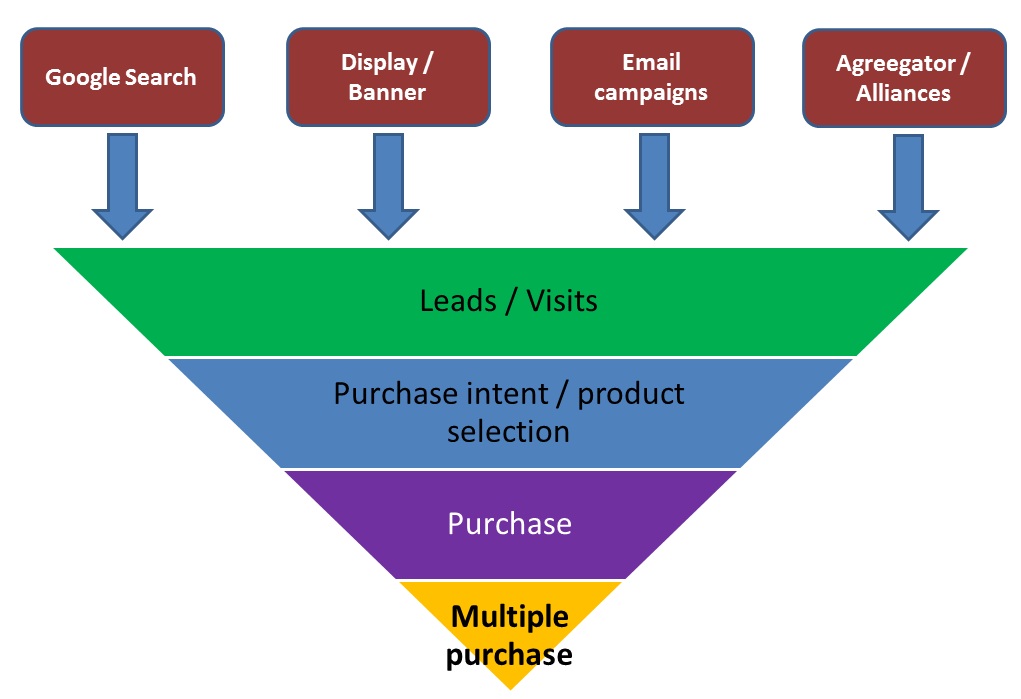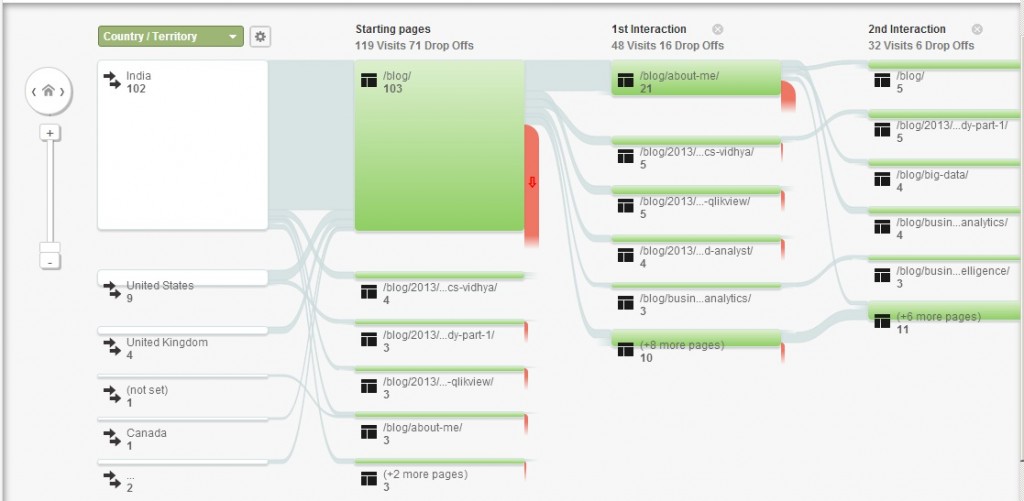E-commerce is a dynamic and developing industry and so is web analytics. Mix the two and you can expect a world dynamic to its core. In such a dynamic and competitive industry, analytics is set to become a differentiator in how you get those extra customers and maximize their life time value.
Ironically, I get asked “How is web analytics applied in an e-Commerce website?” too frequently. At times, I come across people with in analytics industry ignorant about developments and applications of web analytics. This post aims to provide an overview of how web analytics can help an e-Commerce websites. Following are some benefits which you can realize by use of web analytics:
- Deep understanding of prospect behavior resulting in higher customer conversion
- Happier customers as they are served with what they would be looking for
- Higher profit margins as you get higher share of wallet from your customers
So, how do we achieve these benefits? Simply, keep reading and you’ll get a good overview.
Following diagram shows a typical customer journey framework:
Applications of web analytics on e-Commerce sites can be divided in three parts:
- Bringing more prospects through various acquisition channels
- Converting more prospects to customers
- Maximizing life time value of customers
Lets look at how web analytics can help in each of these areas:
[stextbox id=”section”]Bringing more prospects to the website [/stextbox]
How do you get more prospects to your site in a cost efficient manner? Which channels are more efficient in bringing customers who are more likely to make a purchase? Which channels bring customers with higher life time values?
These are some questions which can be answered through web analytics. Following are some more examples where web analytics can help:
- Compare performance of various banner placements and creatives. Which ones have higher bounce rates? Which banner animation brings more relevant traffic?
- Which search terms bring traffic more likely to convert? Are there any low competition niche keywords which can bring you high conversion traffic?
- Which subject line in an Email campaign has higher open rate? Higher click through?
[stextbox id=”section”]Converting more prospects to customers[/stextbox]
Within this domain, the first area where web analytics helps is in understanding your prospects and customers. Do they like interactive site or they prefer to have a simple and directed journey? Do they expect multiple options or they want to just go ahead with the most popular options? What kind of advertisements are non-intrusive? Understanding these critical and specific questions ultimately help in converting more prospects into customers.
The second area where web analytics helps is understanding the journey of your customers. Are there particular pages or fields where a lot of people drop off? Following is a screenshot of how this journey page typically looks:
This particular screenshot tells that there is a huge drop which happens between home page and the next pages. It also tells which are the routes which customers take more often and which are the pages where customers end up going to and fro. Further, you can create different journeys for different traffic sources. Typically, prospects from display ads will have higher conversion chances if you ask bare minimum information from them. On the other hand, if the customer is coming from Search, they would expect more product information before purchasing.
Third area where web analytics helps is to understand overlap of various traffic sources. How many customers are influenced by your affiliates in order to convert prospects to customers? Do you give them due credit? Are you sure you don’t pay them for Sales where they had limited role to play?
[stextbox id=”section”]Maximizing life time value of customers[/stextbox]
Once a person has become your customer, you have some more information about him. Here are some examples:
- What kind of city and geographical locality did he come from?
- What mode of payment did he use?
- Which Credit card did he use?
- What product did the person buy?
- Is he likely to be a young person? Professional middle aged Salaried person?
All this information can help you to pitch the right product for the customer, next time he visits your site. Here are some questions you can answer basis the information you have gathered till now:
- What kind of products can you cross-sell or up-sell to these customers?
- If a customer has not responded to a promotion in last ten visits, there is a little chance he would respond now.
- If a customer bought a printer 6 months back, can you offer him a ink cartridge now? Or may be a discount on purchasing multiple cartridges?
All these are ideas and areas where web analytics can help a e-Commerce website. Each of these areas deserve more detailed posts in future. Hopefully this post would have helped with various applications of web analytics.
In case you know of some more interesting and exciting applications of web analytics, please feel free to share.




